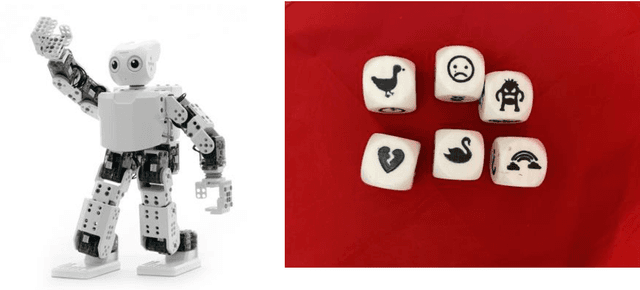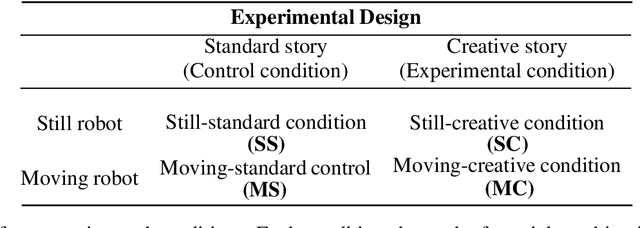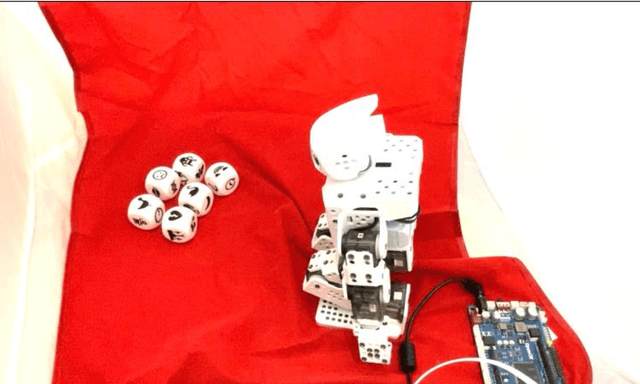Human-Robot Creative Interactions (HRCI): Exploring Creativity in Artificial Agents Using a Story-Telling Game
Paper and Code
Feb 08, 2022



Creativity in social robots requires further attention in the interdisciplinary field of Human-Robot Interaction (HRI). This paper investigates the hypothesised connection between the perceived creative agency and the animacy of social robots. The goal of this work is to assess the relevance of robot movements in the attribution of creativity to robots. The results of this work inform the design of future Human-Robot Creative Interactions (HRCI). The study uses a storytelling game based on visual imagery inspired by the game 'Story Cubes' to explore the perceived creative agency of social robots. This game is used to tell a classic story for children with an alternative ending. A 2x2 experiment was designed to compare two conditions: the robot telling the original version of the story and the robot plot-twisting the end of the story. A Robotis Mini humanoid robot was used for the experiment. As a novel contribution, we propose an adaptation of the Short Scale Creative Self scale (SSCS) to measure perceived creative agency in robots. We also use the Godspeed scale to explore different attributes of social robots in this setting. We did not obtain significant main effects of the robot movements or the story in the participants' scores. However, we identified significant main effects of the robot movements in features of animacy, likeability, and perceived safety. This initial work encourages further studies experimenting with different robot embodiment and movements to evaluate the perceived creative agency in robots and inform the design of future robots that participate in creative interactions.
 Add to Chrome
Add to Chrome Add to Firefox
Add to Firefox Add to Edge
Add to Edge